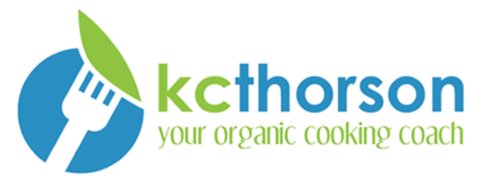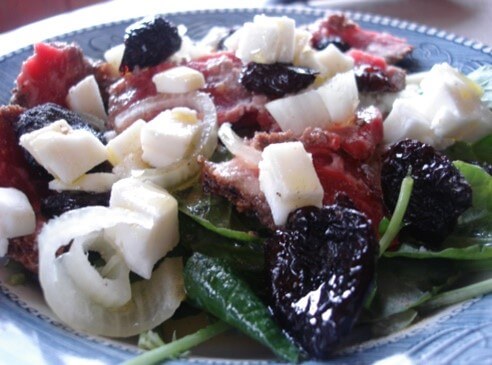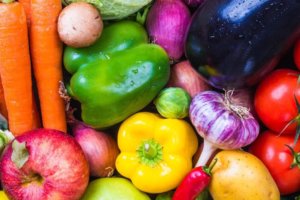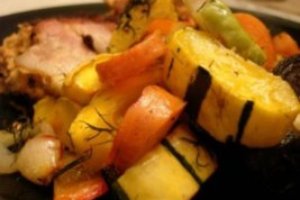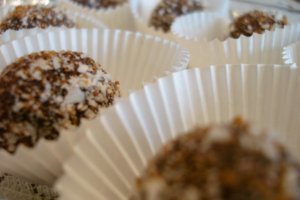Psychologists say that 78% of those who make New Years resolutions fail. And as is the case with most resolutions, folks are ready to dive in head first after the turn of the New Year. However when they feel they can no longer tread water, they revert back to the same old habits that they were anxious to change.
Change can be simple but it’s not easy and there are mistakes that many make when embarking on a new and healthier cooking and dietary lifestyle. Here are 6 major reasons that can make the waters more difficult to navigate.
- They head out to a natural food store or farm market and purchase a cart full of new and unfamiliar foods. Organically grown, unrefined foods often have a shorter shelf life. These foods are pure, fresh and “real” and have real lifespans. Often, conventional and processed foods have been grown using strong pesticides, are treated with preservatives and although they may look good on the outside, the food is no longer living on the inside which accounts for their “longer shelf life”. Many make the mistake of initially buying too many natural foods and after a few days when a good portion go bad, they become discouraged. Too often this leads to reverting back to old ways.
TIP: Begin your journey at a slower pace and purchase a few items at a time (those that you routinely buy, like apples) in organic form so that you become accustomed to the brand, shelf life and amount that works best for your household.
- They become perplexed with shopping, food preparation time and menu planning. Many, who desire to transition to a healthy cooking/dietary lifestyle are coming off a habit of relying on fast foods & carryout in addition to canned, boxed and/or microwaveable offerings. Without a regular cooking routine, they become discouraged when preparing healthful foods from scratch, not being familiar with the amounts of ingredients, seasonings, etc. or the proper stove top or oven temperatures used for various dishes.
TIP: Begin by taking a few basic cooking classes or enroll in a series of classes and/or workshops that continue to elevate your food prep skills. Begin your transition by purchasing simple products such as organic fruit, frozen organic veggies, grassfed meats, organic poultry, and pastured pork. These are easy and basic foods that do not require long cooking times or complicated processes. Consult recipes that incorporate these foods in various ways, until you get a feel for the preparation process … OR hire a cooking coach or personal chef to help you begin your journey successfully.
- They make their resolution about the destination, not the journey. While visualization of an end result can be good, success is really about making a permanent lifestyle change. This is one of the main reasons why most diets fail … once the weight is lost, the dieter feels the journey is finished and returns to the lifestyle that served to create the gain. To make a successful transition, it’s imperative that the new lifestyle be customized to the individual and/or family and that easy processes resulting in tasty and go-to options be widely available in the kitchen, home and office.
TIP: As 66 days, according to experts, is the time frame given to effectively incorporate a new habit, determining the journey is key to success. A 3 month “plan of action” will help to ensure that you stay on pace. This doesn’t mean that you need to plan out each menu or dish but that you put a plan in place that keeps you moving forward. This can include a “pantry review and restock”, trying new dishes and ingredients, establishing an online resource for home delivery during an unusually busy time, joining a CSA (Community Supported Agriculture) program for affordable produce and meats during the growing season, etc.
- They equate the “everything in moderation” mantra as a wise means to “healthy” cooking and diet. This theory may have been effective years ago, when most foods were naturally raised and locally grown. Today’s conventional farming includes methods of bio-engineering that recent studies indicate may be harming our digestive tract, saturating our foods with pesticides and increasing gluten proteins to an indigestible level. There are a number of foods today, including high fructose corn syrup and sugar, that should not be consumed, even in moderation. And those who are sensitive to gluten, should not be consuming gluten in any amount or any form. These “foods”, in addition to keeping us obese and unhealthy, are damaging our organs and intestinal walls.
TIP: Education, education, education. There are many videos available today (free or affordable) that report to the public what’s going on with our food system and how this is affecting us physically. Be informed. The internet is a wealth of information in regard to studies, breaking news, nutritional data, etc. Subscribe to e-magazines, e-newsletters and/or websites that provide factual and expert cutting edge info. Follow respected and credible nutritional experts on Twitter, Facebook, Google +, etc. Research local farms at Eat Wild.com and Local Harvest.org.
- They subscribe to the “calories in, calories out” theory of weight loss as a “healthy” cooking and dietary rule. Recent studies demonstrate that calories are not a one-size-fits-all measurement of appropriate nutrition for weight loss. Nutrient-dense foods are used by the body for sustenance and fuel. The body easily absorbs the vitamins and minerals from these foods to keep us healthy and our immune systems strong. Often, processed, refined, conventionally grown foods contain troubling amounts of pesticides, synthetic non-food additives and preservatives, in addition to hormones and antibiotics that negatively affect the way that our body “burns” fuel and builds immunity. Many foods are so nutrient void today that not only do they fail to satiate and provide energy, but nutrition experts believe that many “well fed” adults and children may actually be malnourished. Synthetic food additives may “fool” the brain into thinking that we are not satiated even when a proper portion has been consumed. Often, our refined foods are void of fiber and high in carbs and starch which ultimately affect our body’s ability to balance blood sugar levels thereby contributing to an environment of inflammation resulting in premature aging and disease. This puts our immune system at risk and keeps us overweight, no matter how long we may exercise.
TIP: Begin a lifestyle transformation incorporating whole, natural and organic nutrition-dense foods. First and foremost, up your veggie consumption to 7 – 9 servings (approx 1/2 cup) per day. Eliminate all fast, processed and sugar/fructose laden foods. Prepare the bulk of your foods yourself to ensure that the ingredients are pure, without unwanted ingredients. Empty your kitchen of any processed or junk food to avoid the temptation for a fast grab. Begin to take notice of how good you begin to feel when you wake up each day and how much better you begin to sleep. Keep a diary to help listen to your body and to track mood, sleep, weight, and feelings of well being.
- They subscribe to commercial food and diet programs that actually do not educate on food source, cooking or diet. You’ve probably noticed or you may have experienced yourself, how so many gravitate from one diet program to another. Or you may have noticed how quickly weight loss can reverse itself, once the program is done.
TIP: The ONLY way to a truly healthy and successful cooking/dietary lifestyle is to understand how specific foods affect your individual body, physically and psychologically and prepare them yourself. You will never 100% know what may be in foods that are prepared outside of your personal kitchen. Ultimately this means planning, education, learning effective and efficient processes and employing new habits.
If just reading this article overwhelms you and/or you are tempted to turn to a “magic pill” that’s been recently advertised for weight loss or a program that prepares your foods for you …
Consider making what could be an important life-changing investment in your health by employing the services of an organic cooking coach. Learn fast & easy food prep concepts, affordable organic food sources and resources, cutting edge info on gluten and GMO foods, truly healthy customized cooking and food options and fast, easy and delicious recipes that will keep you healthy and satiated without complicated label reading rules, calorie counting or complicated recipe creation.
It’s never too late to begin your journey and change your life. Always know (as many will testify to) that poor health is a very costly condition that affects your family, your work, your play and your quality of life. Poor health and obesity impair our physical movement which is so important to our health, our energy level, and the achievement of our daily tasks and goals. We all invest in things that do nothing for our health or well being – right? So if you don’t have the time or self-education to continue this journey on your own, why not consider investing in ways that will best enable you to succeed, provide good health and a true feeling of accomplishment for you and your family.
Blessings on the journey!
